This is the best way to make a pampas grass wreath for Christmas – according to a dried flower expert
A dried flower expert shows us how to make a pampas grass wreath for a long-lasting display throughout the festive period and beyond
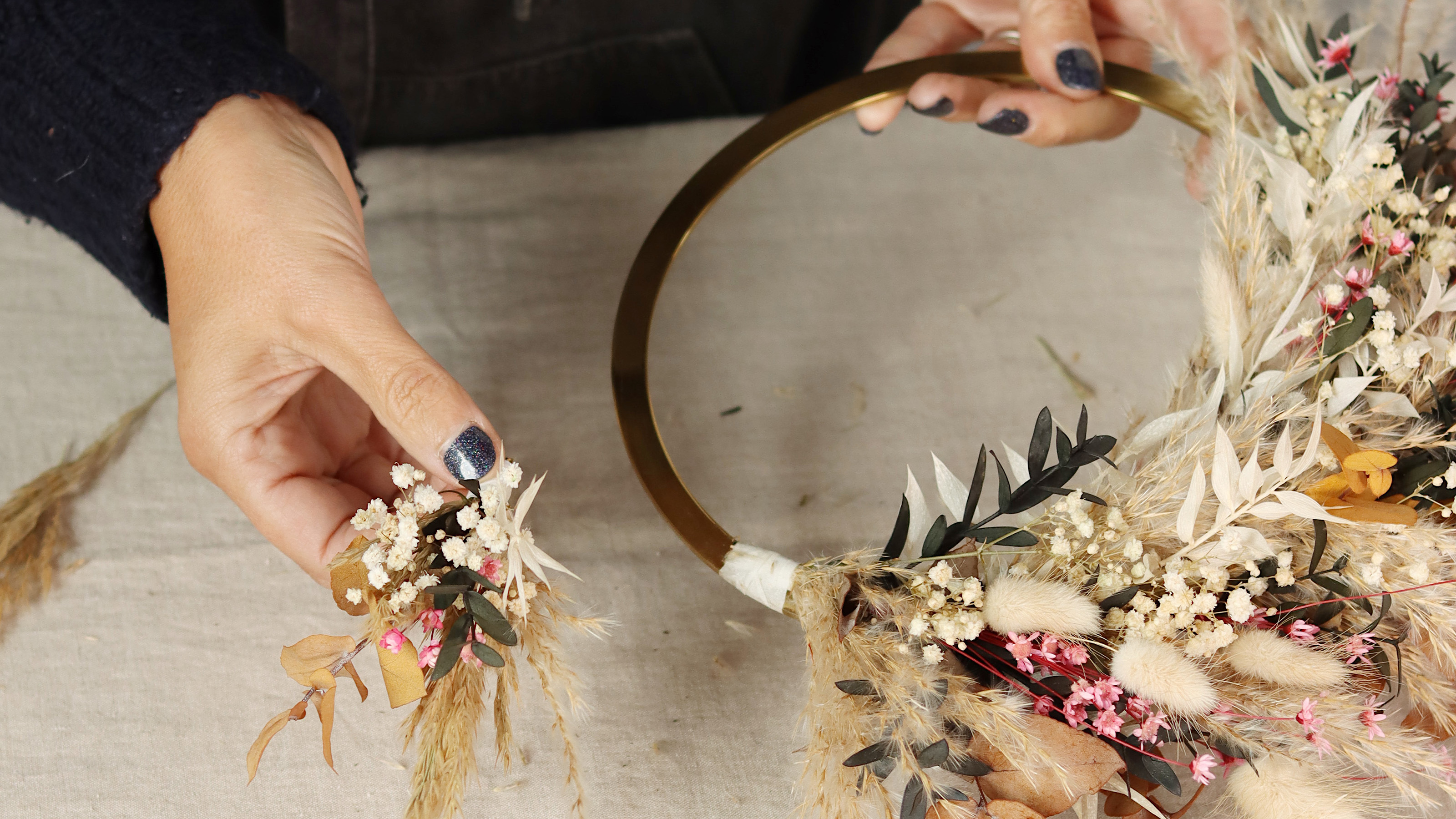

Who better to show us how to make a pampas grass wreath than a preserved flower florist. If, like us, you love getting crafty with plants over the festive period and creating natural, sustainable decorations, then you will love this DIY project.
The soft, subtle texture of pampas grass gives an instantly cozy feel to your decor and the gentle cocooning design of this Christmas wreath idea is ideal for giving you that warm, fuzzy feeling which many of us associate with this time of year.
'Preserved flowers are real plants, expertly grown and harvested at their peak. A special preservation treatment replaces the sap with 100% plant-based glycerine and dyes. The cell structure of the plants is maintained, leaving them feeling soft and naturally beautiful,' says florist Katherine Whitchurch, who launched Shida Preserved Flowers in 2018.
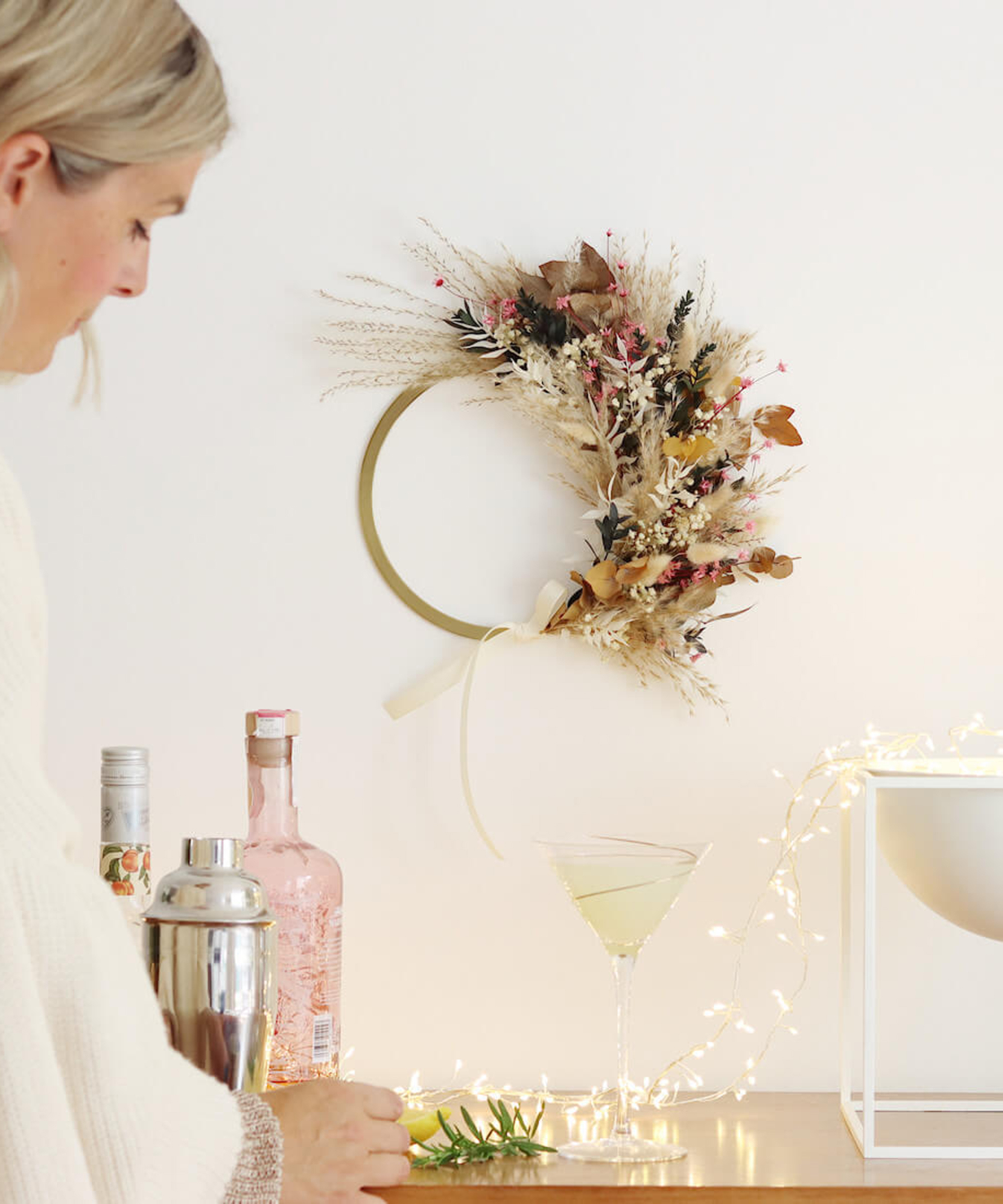
Discover how to make a pampas grass wreath in 4 easy steps
'This year at Shida, our Christmas collections have been designed to add touches of extra luxury to the upcoming holidays,' says Katherine. 'The Etienne Wreath Kit features beautiful tones of cinnamon rose, warm neutrals in soft textures and luxe metallics with a hint of festive sparkle.'
'Follow my step-by-step guide for this DIY Christmas decoration and learn how to make a pampas grass wreath that will last all year. It features beautiful sustainable dried florals, pampas and preserved foliage, or alternatively you can forage your own pampas and seasonal stems from your garden,' she says.
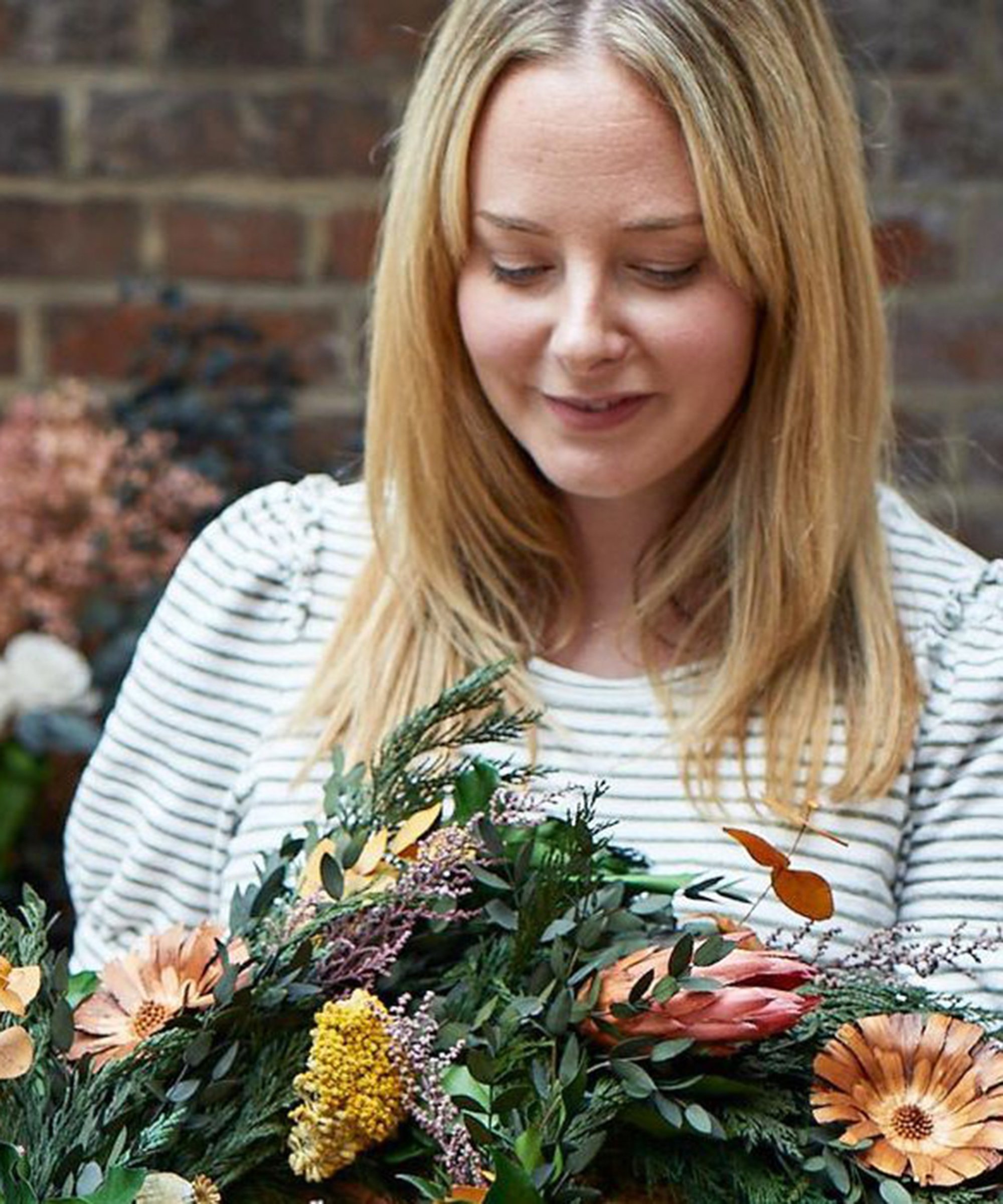
Florist Katherine Whitchurch launched Shida Preserved Flowers in 2018 after discovering the amazing fresh look of flowers and foliage preserved naturally. Shida bouquets offer a maintenance-free solution to styling with flowers. Hand-tied arrangements or letterbox flowers, delivered worldwide, make the perfect gift or home accessory, lasting for a year or more.
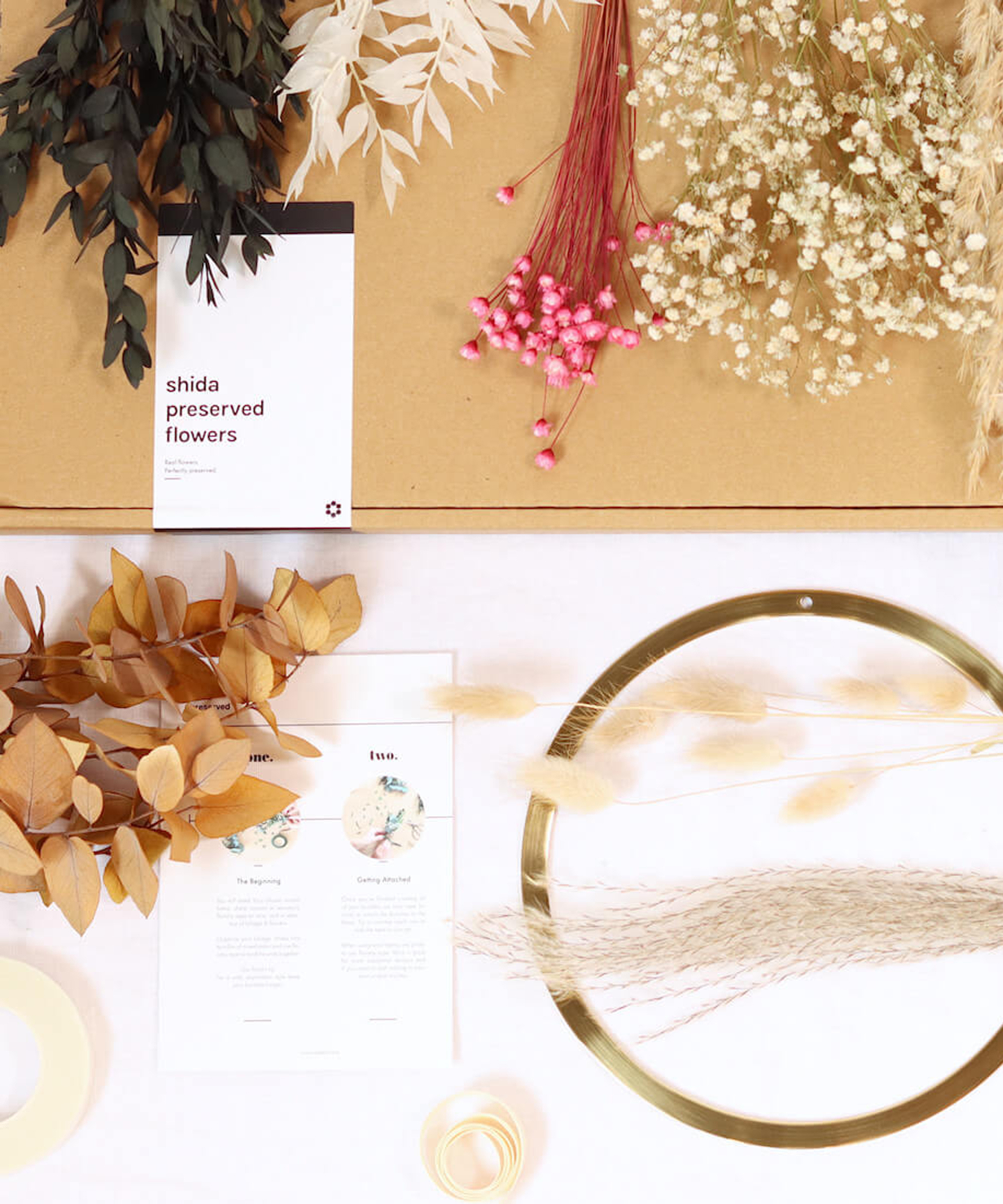
You will need:
- A base for your wreath – the wreath kit from Shida contains a Cooee Design brass wreath for extra festive sparkle. A wire wreath frame or natural rattan or willow woven hoop (both available from Amazon) will also work well.
- Pampas grass stems, enough to roughly cover your chosen base.
- A selection of stems of dried or preserved foliage and flowers, to add interest and definition to your design.
- Floristry tape in white (available from Amazon) or light brown to match your stems.
- Sharp scissors or secateurs.
- Optional ribbon for a final flourish!
1. Organize your pampas grass stems
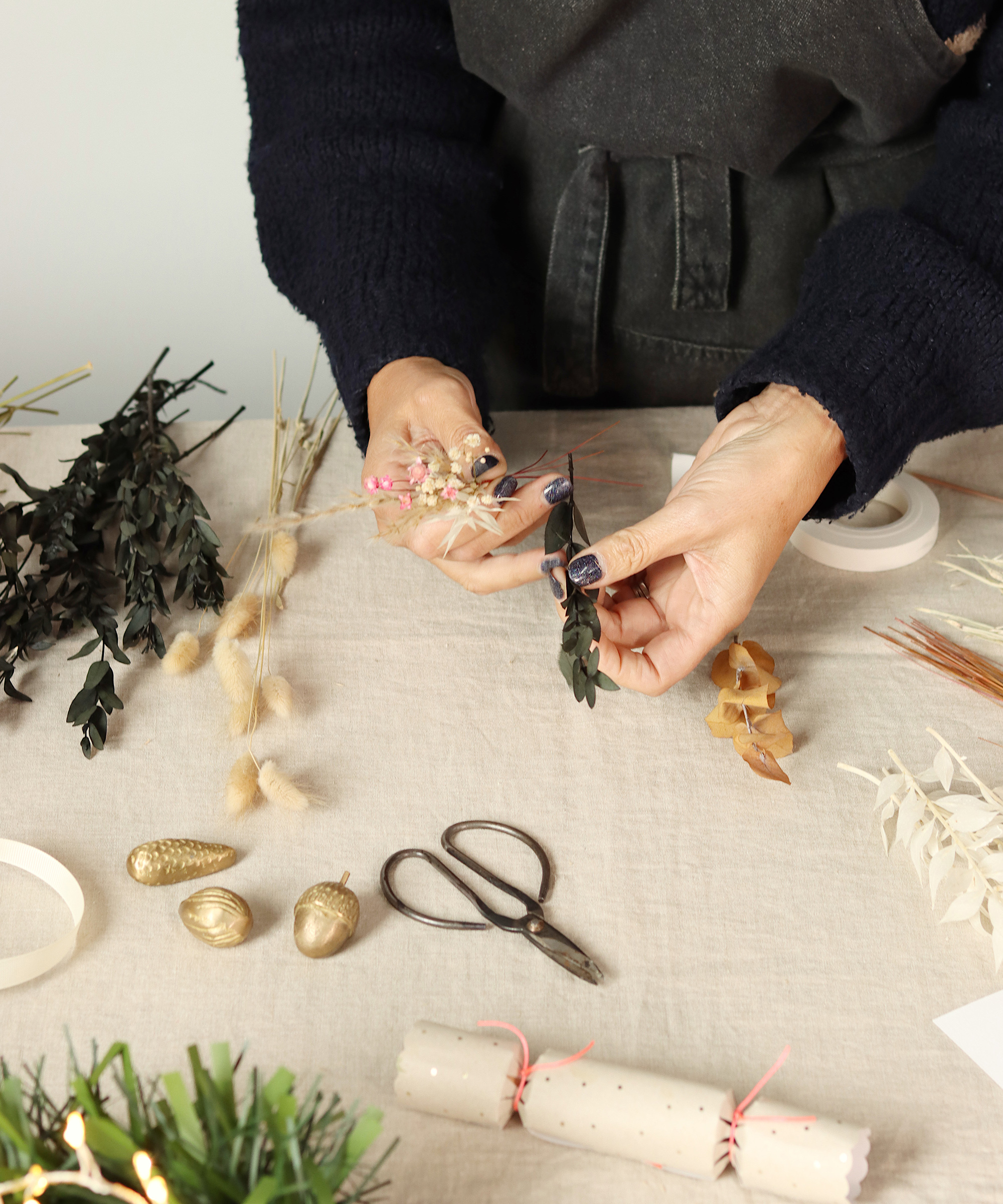
The first step before you start attaching anything to your base is to organize your stems.
Lay them all out and assess what you have. From there make little bundles of mixed stems, and use floristry tape to bind the ends together when you are happy with your combinations.
My florist’s tips would be to aim for a wild, asymmetric style when you make a Christmas wreath using foliage, and keep your bunches longer. For a uniform compact shape make all of your bunches similar in size and design.
- Shop dried flower bundles in the US: view at Afloral
- Shop dried flower bundles in the UK: view at Lisa Angel
2. Attach your stems of foliage to the frame
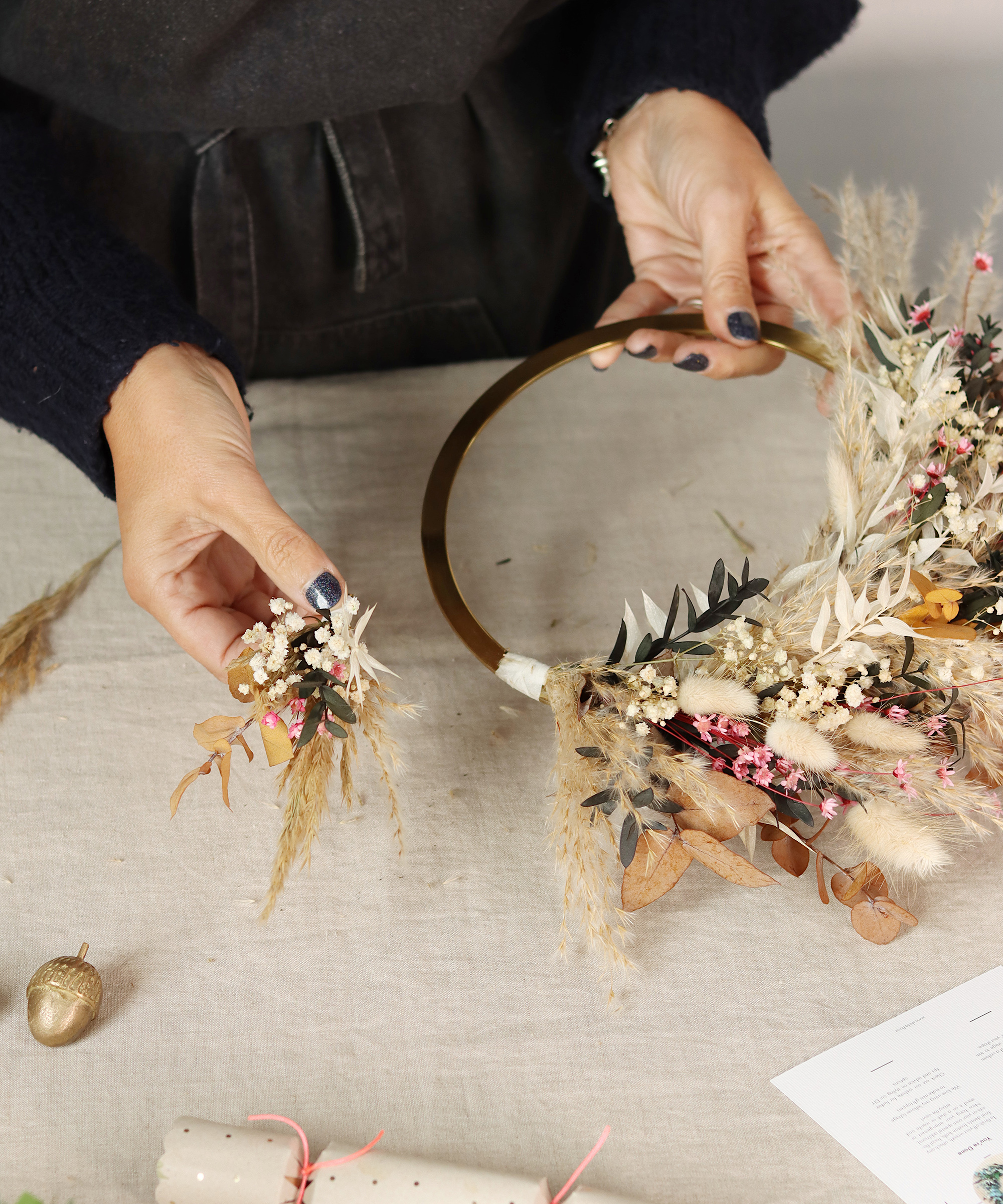
You will need to decide whether you would like your finished design to cover all of your wreath hoop (for a traditional look) or to cover half to three quarters in a contemporary asymmetric design.
Once you have finished creating your bundles, use the floristry tape to attach the dry flower bunches to the hoop. Try to overlap each one to hide the tape as you go. As your wreath starts to take shape you can adjust positioning to create your intended design.
3. Sort out your shapes
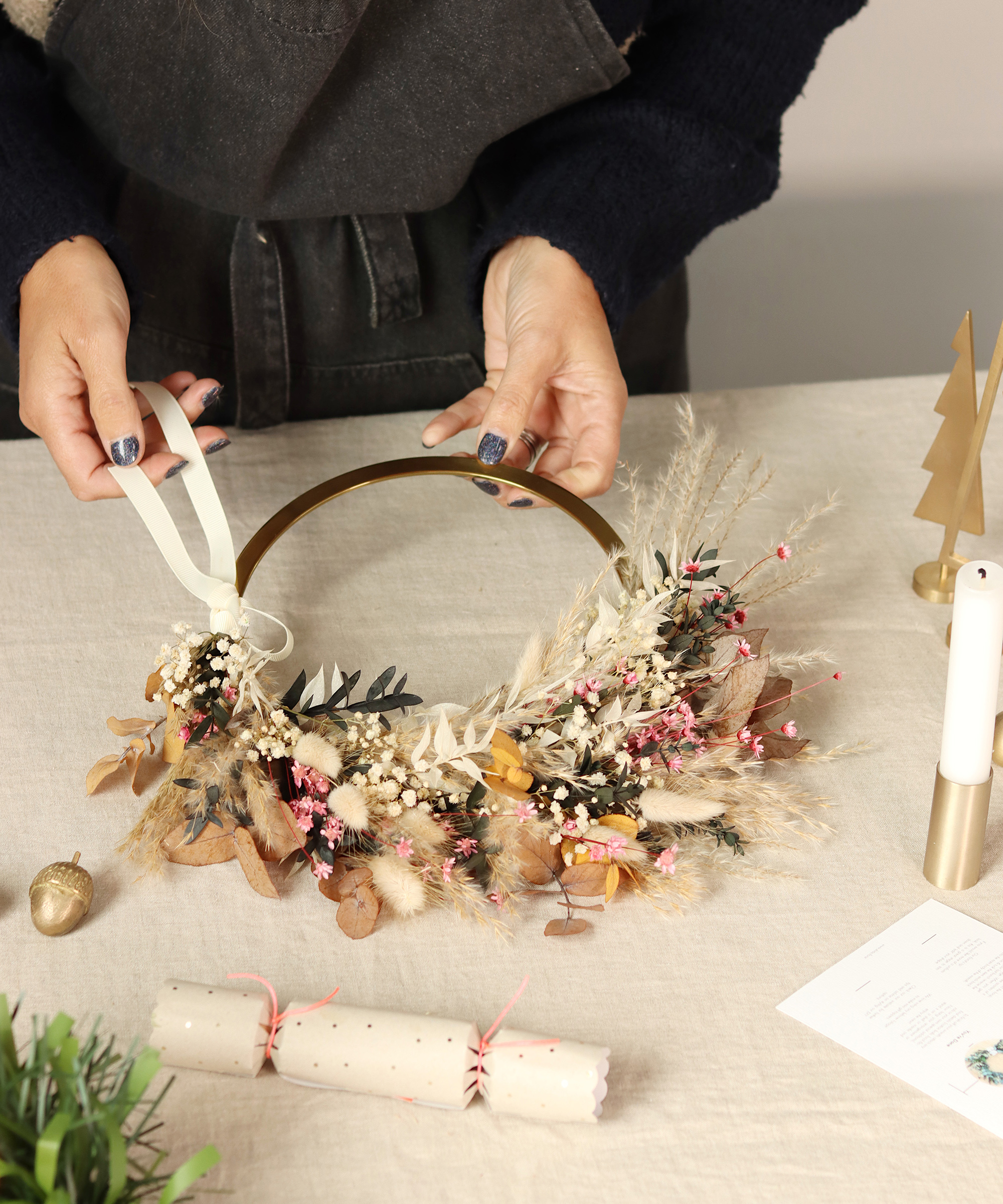
Continue to work around the hoop, then when you get down to your last bunch, reverse the direction and tuck the stem ends back into the main body of the wreath. Alternatively, use your ribbon to cover the last piece of visible floristry tape.
If you would like a more uniform look, this is the stage where I'd recommend you to trim down and ‘edit’ your shape.
4. Display your finished pampas grass wreath
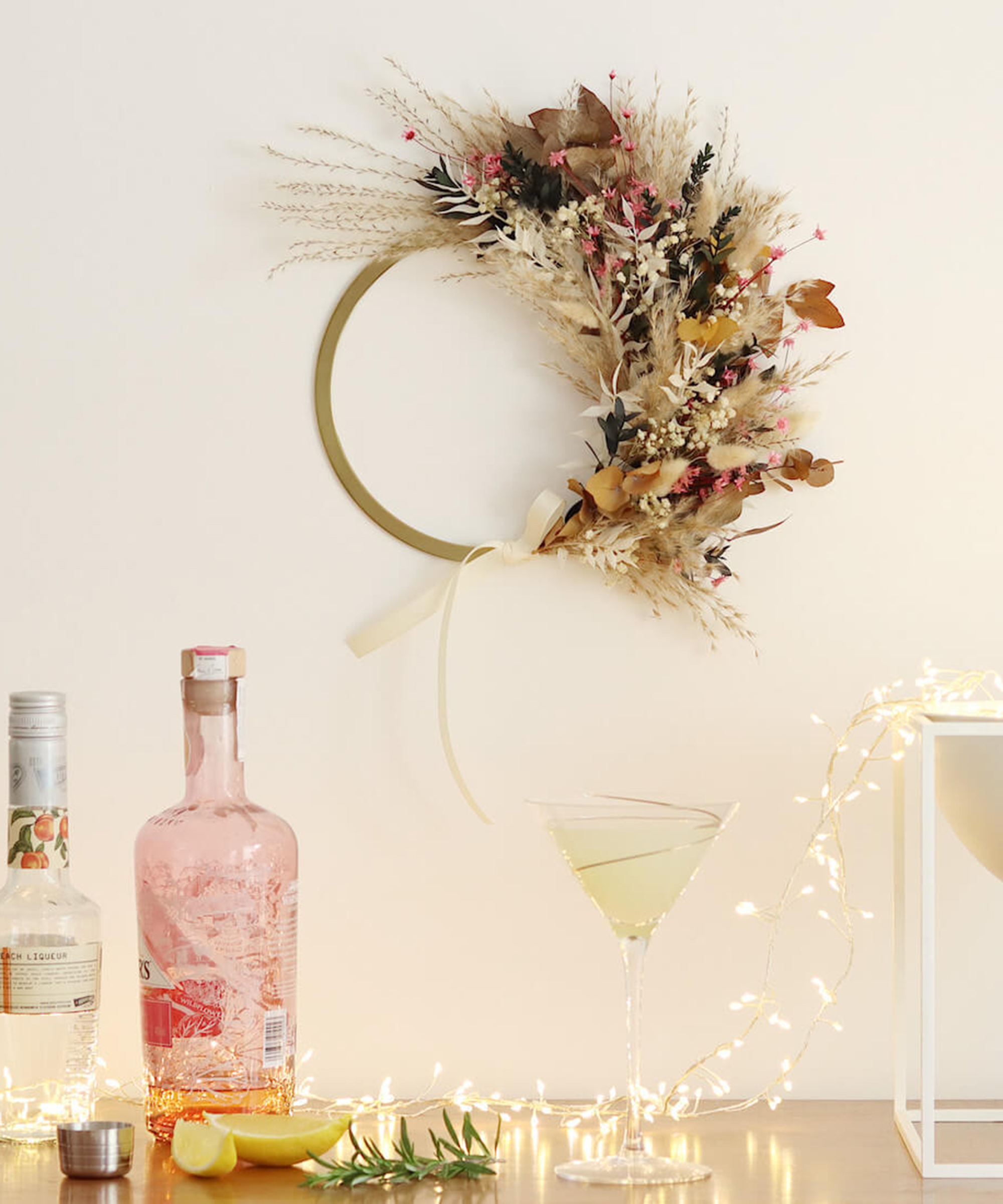
The final stage of how to make a pampas grass wreath is to attach any final details (focal flowers, a beautiful ribbon or your own special additions). Now hang your wreath or stand it on a shelf or mantle, or use it for your Christmas door decor ideas on a covered porch, and enjoy the view!
Don't throw away your leftover stems, we love using any leftover pampas grass and dried flowers to make mini gift toppers.
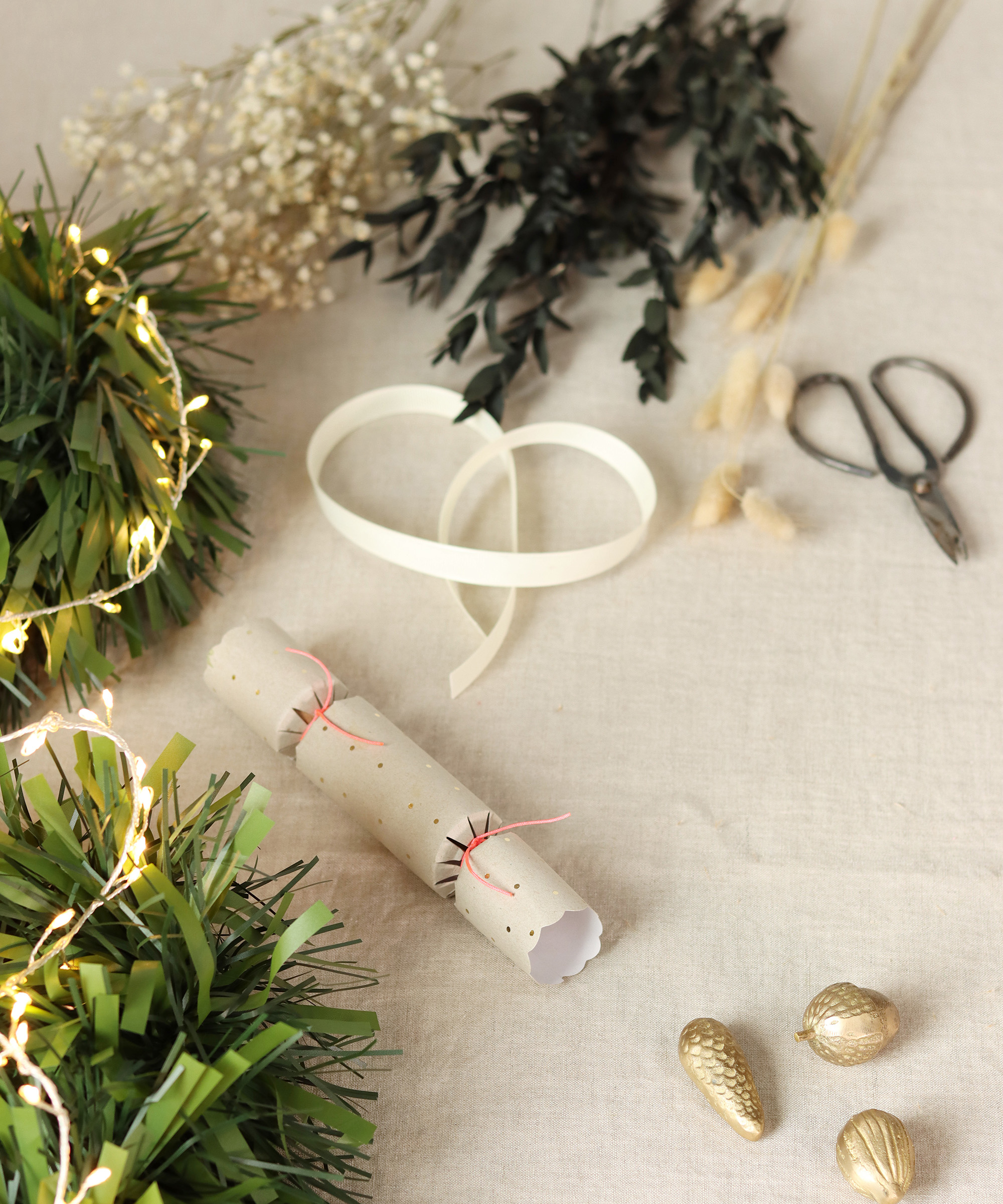

Teresa has worked as an Editor on a number of gardening magazines for three years now. So she is lucky enough to see and write about gardening across all sizes, budgets and abilities. She recently moved into her first home and the garden is a real project! Currently she is relishing planning her own design and planting schemes. What she is most passionate about when it comes to gardening are the positive effects it has on our mental health to grow and care for plants, as well as being great for the environment too and help provide food and shelter for wildlife.
